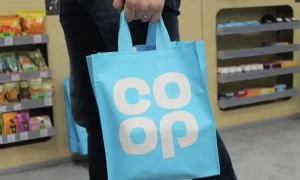
The Co-op is removing use-by dates from its own-brand yoghurt in an attempt to address the problem of millions of pots that are still safe to eat being wasted each year.
Instead, starting next month, the Co-op’s own yoghurts will carry a best-before date, with shoppers encouraged to “use their judgment” to gauge if they are edible. About 42,000 tonnes of yoghurt – £100m worth – is thrown away in British homes each year because it is out of date, according to the food waste charity Wrap. Half are dumped in unopened packs.
Nick Cornwell, the Co-op’s head of food technical, said the “acidity of yoghurt acts as a natural defence. We’d encourage shoppers to use their judgment on the quality of their yoghurt if it is past the best-before date,” he said. “Yoghurt can be safe to eat if stored unopened in a fridge after the date mark shown, so we have made the move to best-before dates to help reduce food waste.”
The average family with children bins 244kg of food, or 580 meals, each year, with the total bill for this waste being £730. For an individual, the estimated waste figure is 69kg, which adds up to £210. This waste is bad for the planet because about a third of the UK’s greenhouse gas emissions are associated with our food and drink.
While use-by dates are about safety, and applied to foods that go off quickly and could cause food poisoning, best-before is an indicator of quality. Food is still safe to eat after this date but the flavour and texture may not be as good.
Use-by dates are often found on products, such as milk and yoghurt, where a best-before one might do, a practice blamed for contributing to food waste. Things are starting to change, however. Morrisons recently switched to best-before dates on its milk, encouraging customers to use the “sniff test” to judge if it is OK.
The “look, smell, taste, don’t waste” campaign, run by food waste app Too Good to Go, has so far enlisted 40 brands, including big names such as Nestlé, Danone and Onken. The companies involved have switched from use-by to best-before dates on products, including milk, yoghurt and cheese.
“We know that the date label on yoghurt is a fundamental reason that it is wasted at home,” said Catherine David, Wrap’s director of collaboration and change. “Applying a best-before date helps give people the confidence to use their judgment to eat beyond a best-before date and use more of the yoghurt they buy.”
The Co-op said the dates would start to change over next month with the switch due to be completed by the autumn.
Read more:
Co-op to ditch use-by dates on its yoghurt to cut waste





